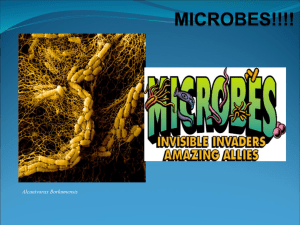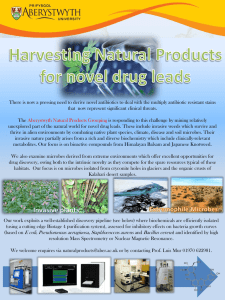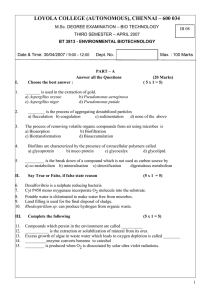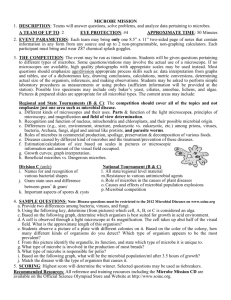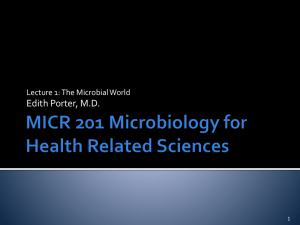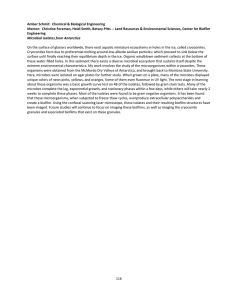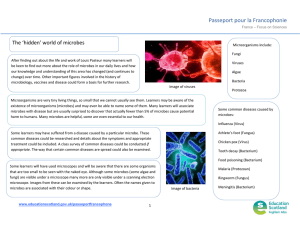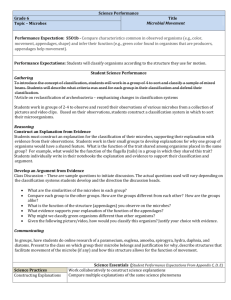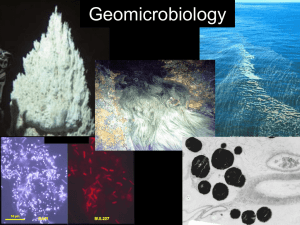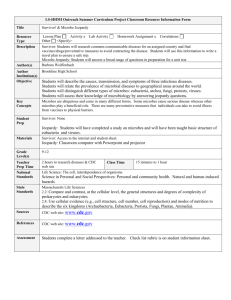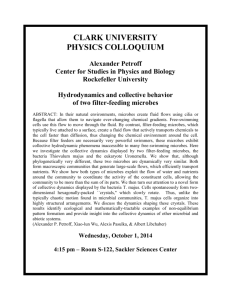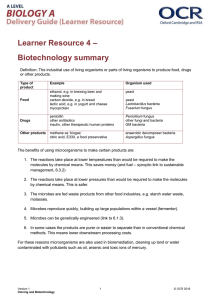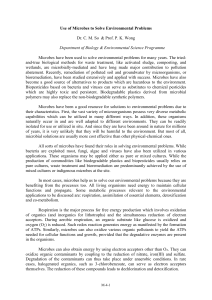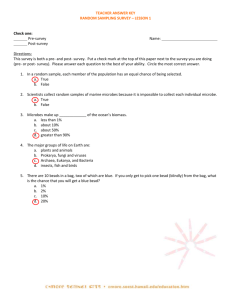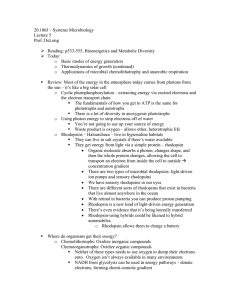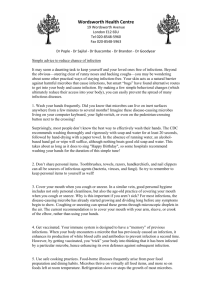Deep Sea Microbes 9t..
advertisement
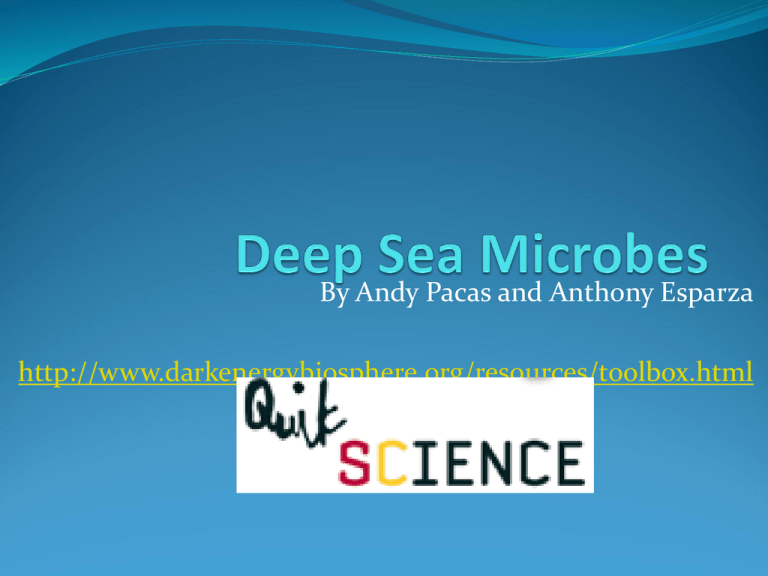
By Andy Pacas and Anthony Esparza http://www.darkenergybiosphere.org/resources/toolbox.html What are microbes? Single celled organisms that make up the bacteria and archaea kingdoms They make up a majority of the life on Earth in terms of mass. They are the first organisms to form. Role in Ecology Nearly all microbes are either decomposers or producers. They play the major role of maintaining the nitrogen and carbon cycles. tiny Evolution Microbes are the oldest organism on earth specifically 3.3 billion years. Without them evolution would have been kaput! Deep Sea Life for the microbes in the deep ocean is intense. Several factors in their environment are immense pressure, complete darkness, and restricted by lack of chemicals and nutrients in most places. The ocean is separated into multiple biospheres or layers Each of these sphere has it’s own characteristics. Only areas that have lots of light have been heavily observed. Alcanivorax borkumensis This is the Latin name for the oil-eating microbe This microbe is found naturally in the deep ocean feeding off oil seeping out of the floor. Discovered recently the microbe Alcanivorax borkumensis has quickly became a global asset in terms of oil clean up for its cheap efficiency. Pros/Cons of treatments Chemical/physical Biological Physical is limited to the area Can treat the whole problem in which it could treat and has some errors involved Chemicals could remove the damages but can unintentionally harm the organisms involved with maximum efficiency and little to no effect to the organisms involved Microbes in oil clean-up Think Why are microbes so essential to all life forms in terms of ecology and evolution? (5min)

